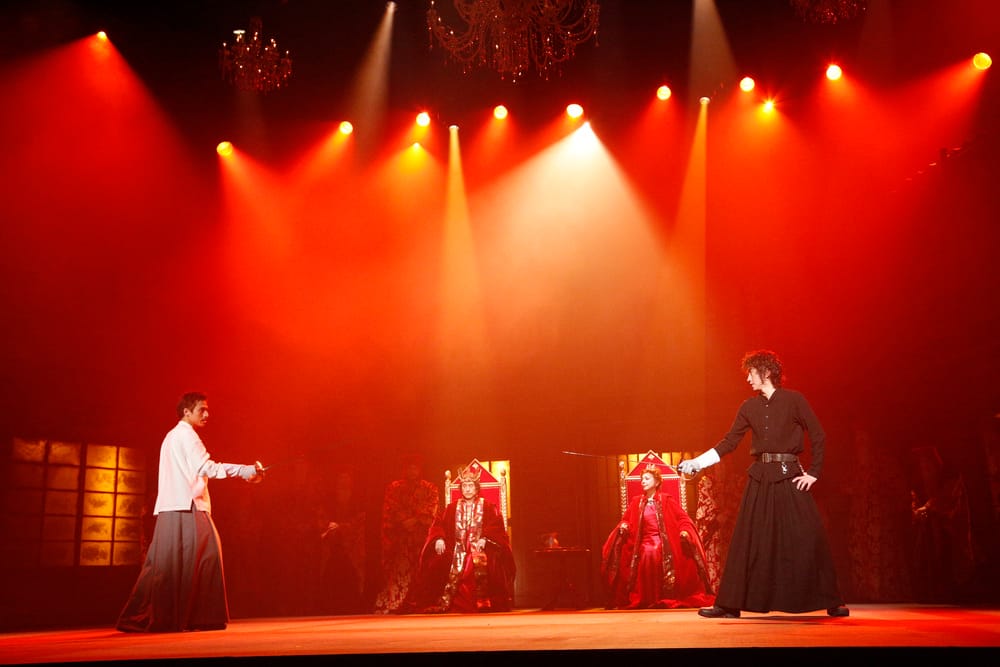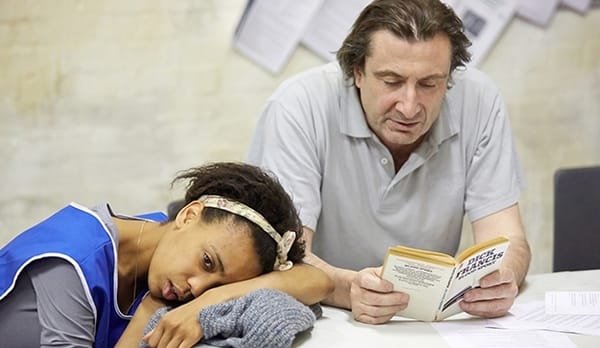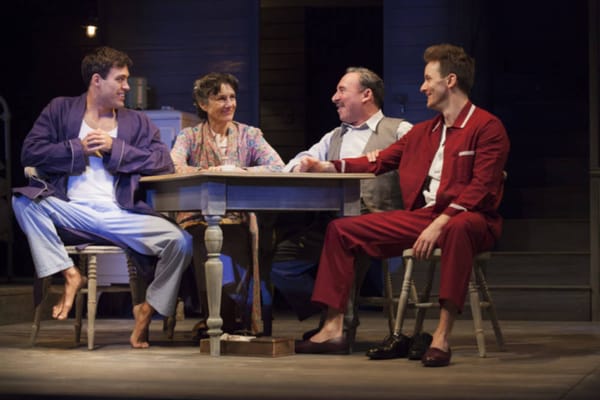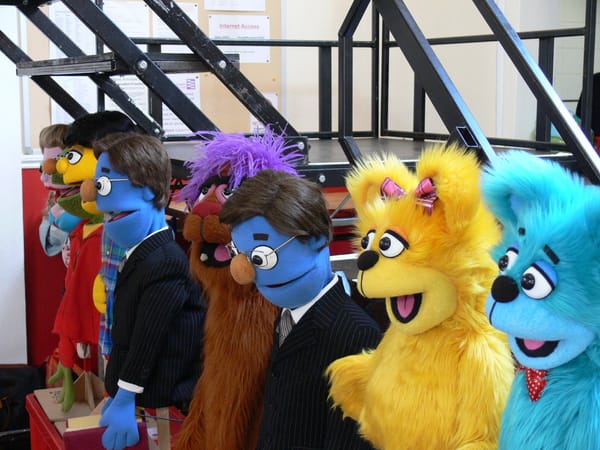Ninagawa’s Hamlet shows a new Bard
Jingjie Cheng finds that Shakespeare’s language is universal

Right from the outset, Ninagawa Company’s Hamlet looked like it had been plucked out of an ancient Japanese film. Blue fog shrouded the stage as Hamlet, Horatio, and the guards dart across the stage, confronted by the ghost of Hamlet’s father. Spine-chilling Eastern music beats steadily in the background. The ghost, draped in robes befitting of a Japanese emperor, weaved in and out of a row of two-storey wooden houses – the permanent set through which characters dash onto the stage from various directions.
Hamlet himself, played by long-time Ninagawa boy Tatsuya Fujiwara, reminded me of an anime character or a hero from a Japanese sword-fighting drama. With his curly, unkempt hair and black, billowing robes complete with a silver chain around his neck, it is easy for us non-Japanese to associate everything on stage with what is familiarly ‘Japanese’ to us. However, it becomes clear that Yukio Ninagawa, a director known for his take on Shakespeare, classical Greek tragedy, and contemporary productions, means more than simply to transpose English literature to a Japanese setting.
Perhaps the way the story seamlessly fits into a completely different setting highlights the universality of Hamlet’s internal struggle and increasing isolation, intensely portrayed by Fujiwara. His anguish was palpable – even on the many occasions where he was alone on stage, his internal turmoil expanded to fill the stage.
Motoi Hattori’s lighting is impeccable, with the ghost king emerging from eerie blue fog, Claudius and Gertrude bathed in a royal and almost incriminating red aura, while Hamlet delivers his ‘to be or not to be’ speech while walking through a shaft of piercing white light. Dramatic lighting played a huge role in blowing up appropriately intense and dramatic scenes, as well as highlighting the turmoil within the conflicted Hamlet and guilty Claudius.
The story seamlessly fits into the completely different Japanese setting
Indeed, there is a grandeur to this production that I rarely see in traditional takes on Shakespeare, which nowadays tend to be minimalist in stage set and prop use. The extravagance of the puppet scene, for example, emphasizes the elaborate farce that reigns in the court, where brother sins against brother and then weds his widow. Painted actors resembling traditional Japanese puppetry enact a carefully constructed script of betrayal, but when Claudius realizes that it parallels his own backstabbing of his brother, he storms out in rage and guilt. What ensues on stage is overwhelming, slow-motion chaos. The collapse of the controlled drama into flashing lights, dramatic music and utter pandemonium on stage mirrors the breakdown of Claudius’ image created upon his brother’s death, and from this point onwards Claudius begins to fear Hamlet and for his tenuous hold on the throne.
Ninagawa is not afraid to go all the way in exposing the characters’ inner struggles in dramatic visual representations – in the scene following the puppet show, Claudius is seen dousing himself in a bucket of water and then beating himself with a rope, clearly anguished and tormented by his fear and guilt. He then quietly prays while Hamlet approaches him from behind, all the while gripping his sword, unsure of the wisdom of killing him there and then.
Ninagawa’s unique take on Hamlet explores a new dimension of the story, enhancing the play
Perhaps the most nuanced and heart-wrenching performance comes from Hikari Mitsushima’s Ophelia, who is introduced to us as a gentle girl discussing with her father Hamlet’s perceived advances towards her. Her dainty innocence is progressively corrupted in the play as she is first violently treated by Hamlet, who screams at her to go off to a nunnery, then loses her father Polonius when Hamlet kills him accidentally. She is clearly terrified by Hamlet’s change, but it is upon learning of her father’s death that she descends into a delicate madness. It was almost as if her innocence could not stand up against the farce and cruelty in court, and like the flowers she hands out to the other characters in her delirium (‘rosemary is for remembrance’), she is easily trampled upon and swept aside in the midst of betrayal and greed. Mitsushima’s Ophelia was one of the inadvertent victims of Hamlet’s own conflicts – but her purity and deep, untainted love for her father was perhaps the only redeeming good in the dark and twisted halls of the Danish court.
Ran Ohtori’s Gertrude, on the other hand, was a bland, somewhat one-dimensional character whose own conflicts were not fully explored. It seemed to me that she was a docile woman who willingly followed whoever was in power, without fully understanding her son’s feelings of betrayal – a relationship that had potential to be fleshed out.
As Ninagawa himself mentioned, it seems almost ‘hubris’ to bring a Japanese adaptation of a classic English play back to its country of origin. In my opinion, however, his unique take on Shakespeare’s longest play explores a dimension of the story which enhances its scope for performance. It is always fascinating to observe the versatility of literature, and Ninagawa’s Hamlet certainly does not disappoint.
The Ninagawa Company’s Hamlet was on at the Barbican Centre from the 21st - 24th May. The Ninagawa Company will return for Kafka on the Shore, 28th - 30th May. Tickets available online.








